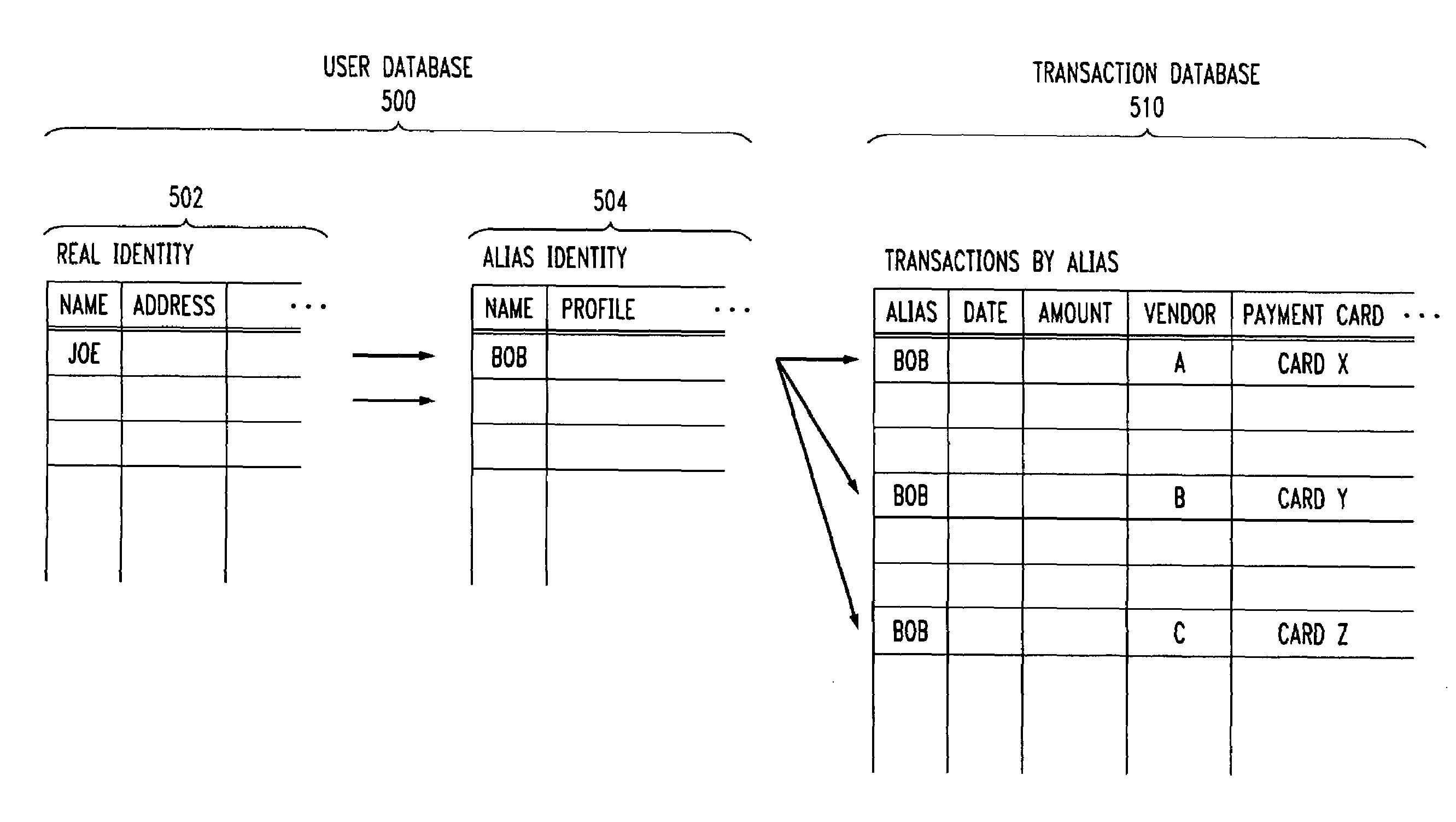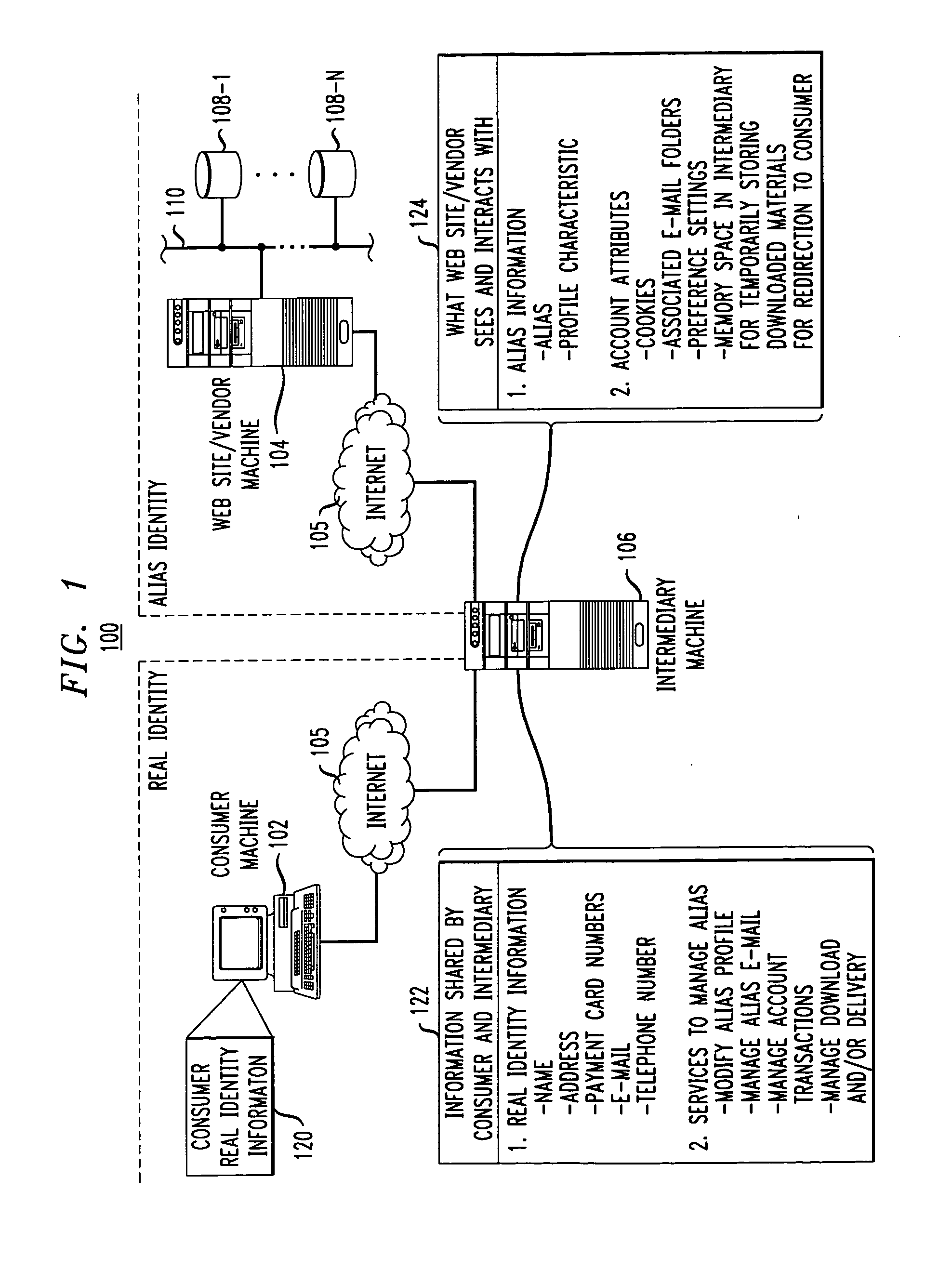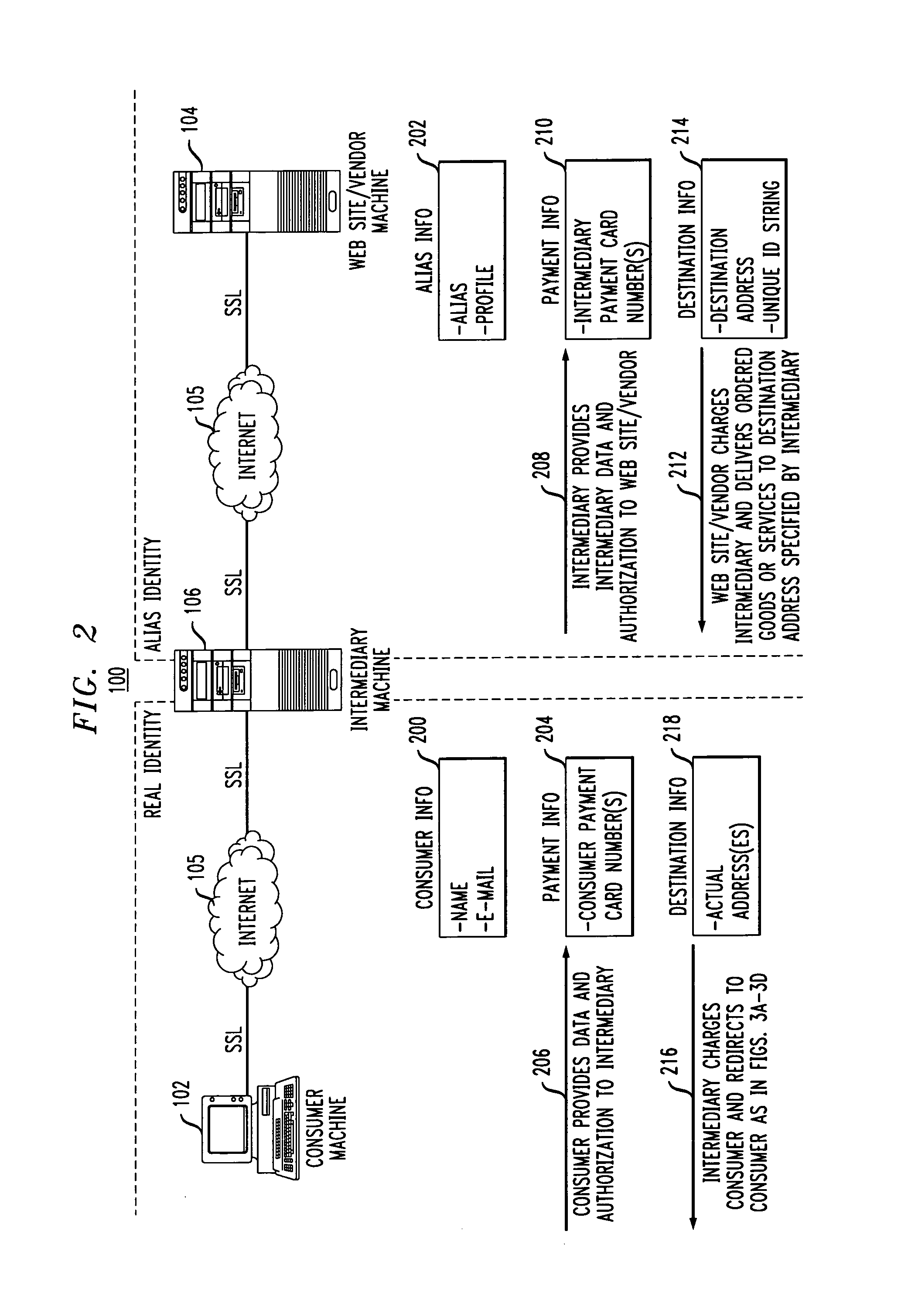Methods and apparatus for providing user anonymity in online transactions
a technology of anonymity and online transactions, applied in the field of anonymity provisioning methods and apparatuses in online transactions, can solve the problems of increasing the likelihood that such information will be misappropriated, fraud, identity theft or other undesirable consequences for consumers, and operators may use personal information in a manner, so as to limit fraud risk
- Summary
- Abstract
- Description
- Claims
- Application Information
AI Technical Summary
Benefits of technology
Problems solved by technology
Method used
Image
Examples
Embodiment Construction
[0030]FIG. 1 shows an illustrative embodiment of the invention. The invention in this illustrative embodiment is in the form of an Internet-based online transaction system 100 which provides complete end-to-end user anonymity, even in the context of online transactions. The system 100 is configured to provide not only anonymous Internet browsing services, but also complete anonymity for those users desiring to enter online transactions with online vendors or other web site operators. More particularly, users of the system 100 are not required to abandon their anonymity once they enter an online transaction with a web site operator. As will be described in greater detail below, the system 100 allows users to enter such online transactions without their personal information ever being disclosed to the web site operators. The invention thus solves the misappropriation problems of the prior art, and as will become apparent does so in a manner which does not require the adoption of new i...
PUM
 Login to View More
Login to View More Abstract
Description
Claims
Application Information
 Login to View More
Login to View More - R&D
- Intellectual Property
- Life Sciences
- Materials
- Tech Scout
- Unparalleled Data Quality
- Higher Quality Content
- 60% Fewer Hallucinations
Browse by: Latest US Patents, China's latest patents, Technical Efficacy Thesaurus, Application Domain, Technology Topic, Popular Technical Reports.
© 2025 PatSnap. All rights reserved.Legal|Privacy policy|Modern Slavery Act Transparency Statement|Sitemap|About US| Contact US: help@patsnap.com



